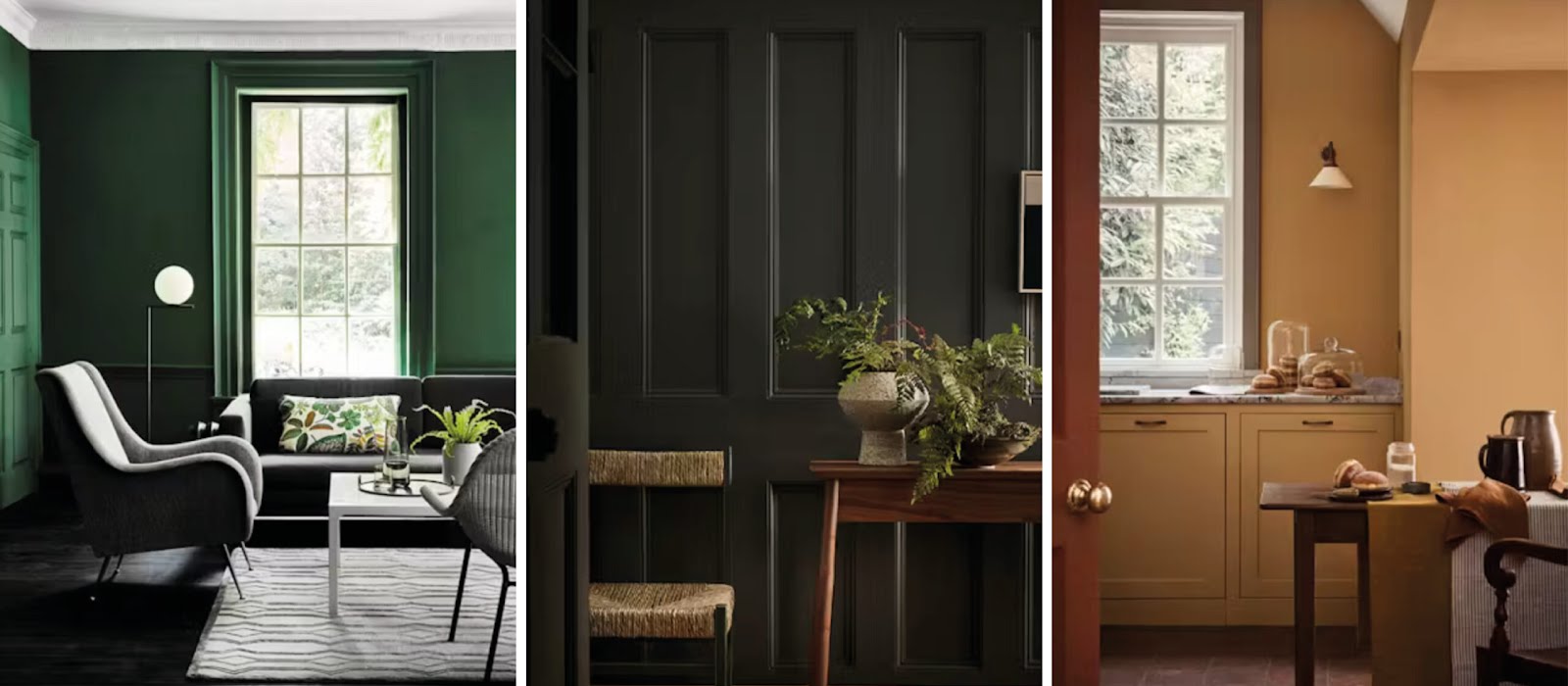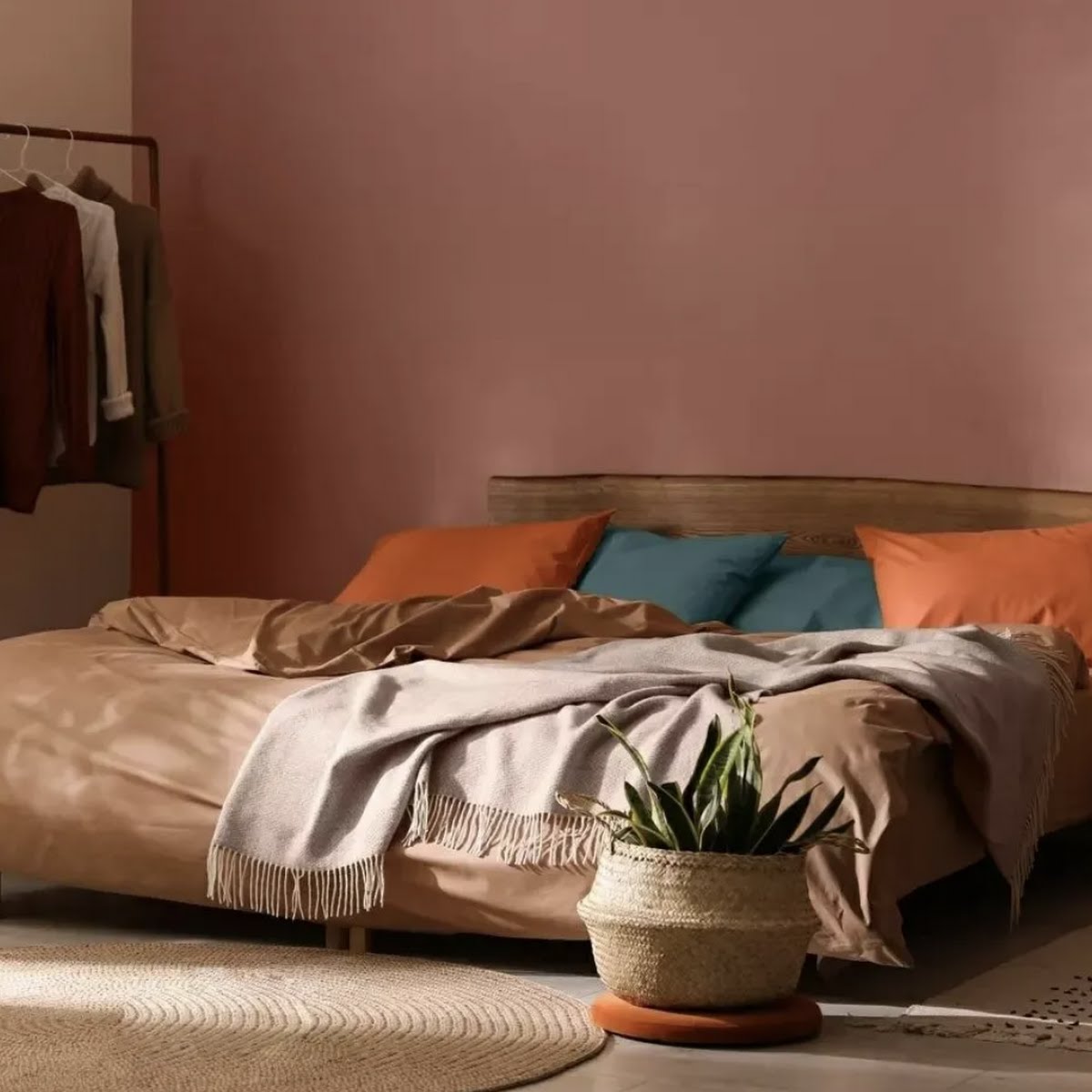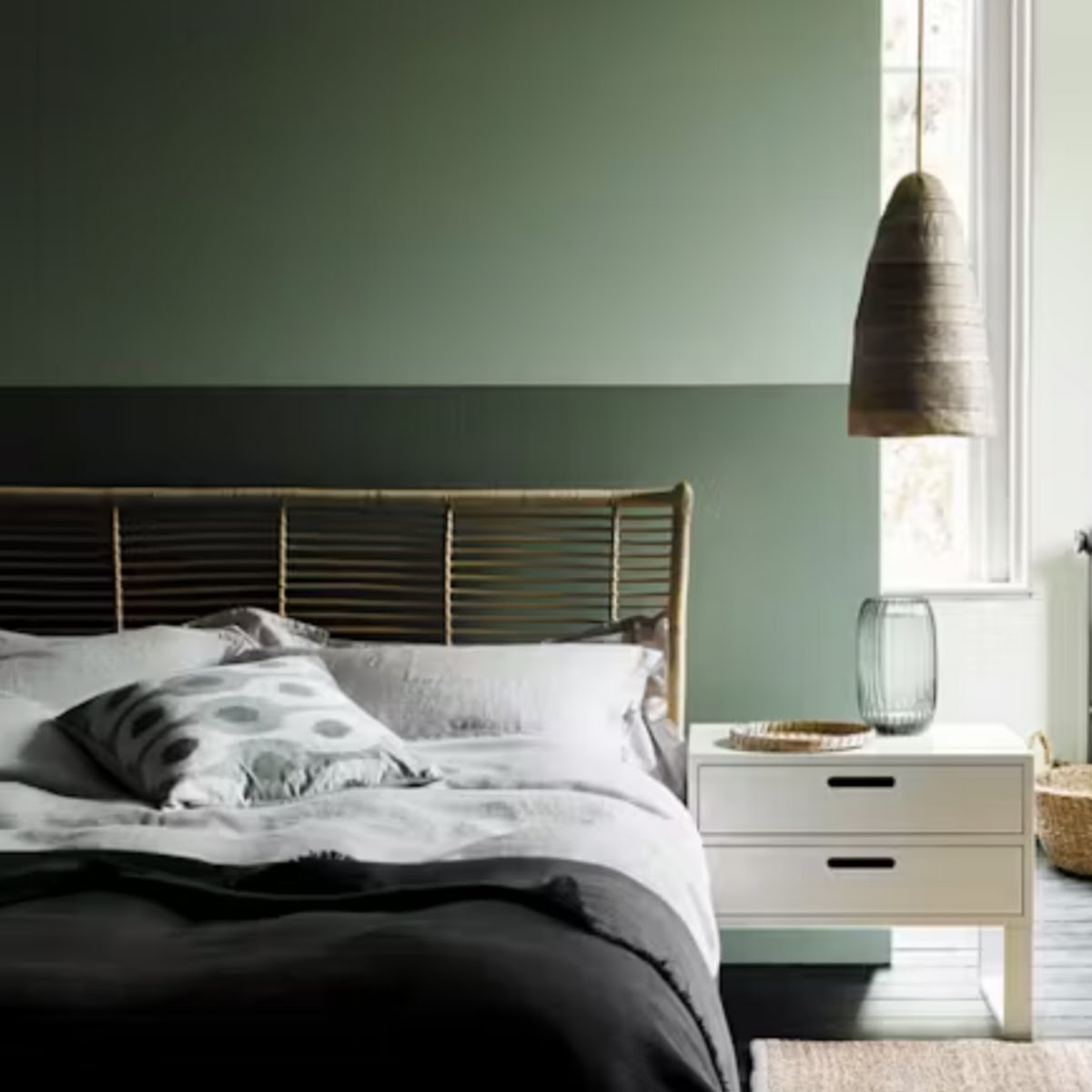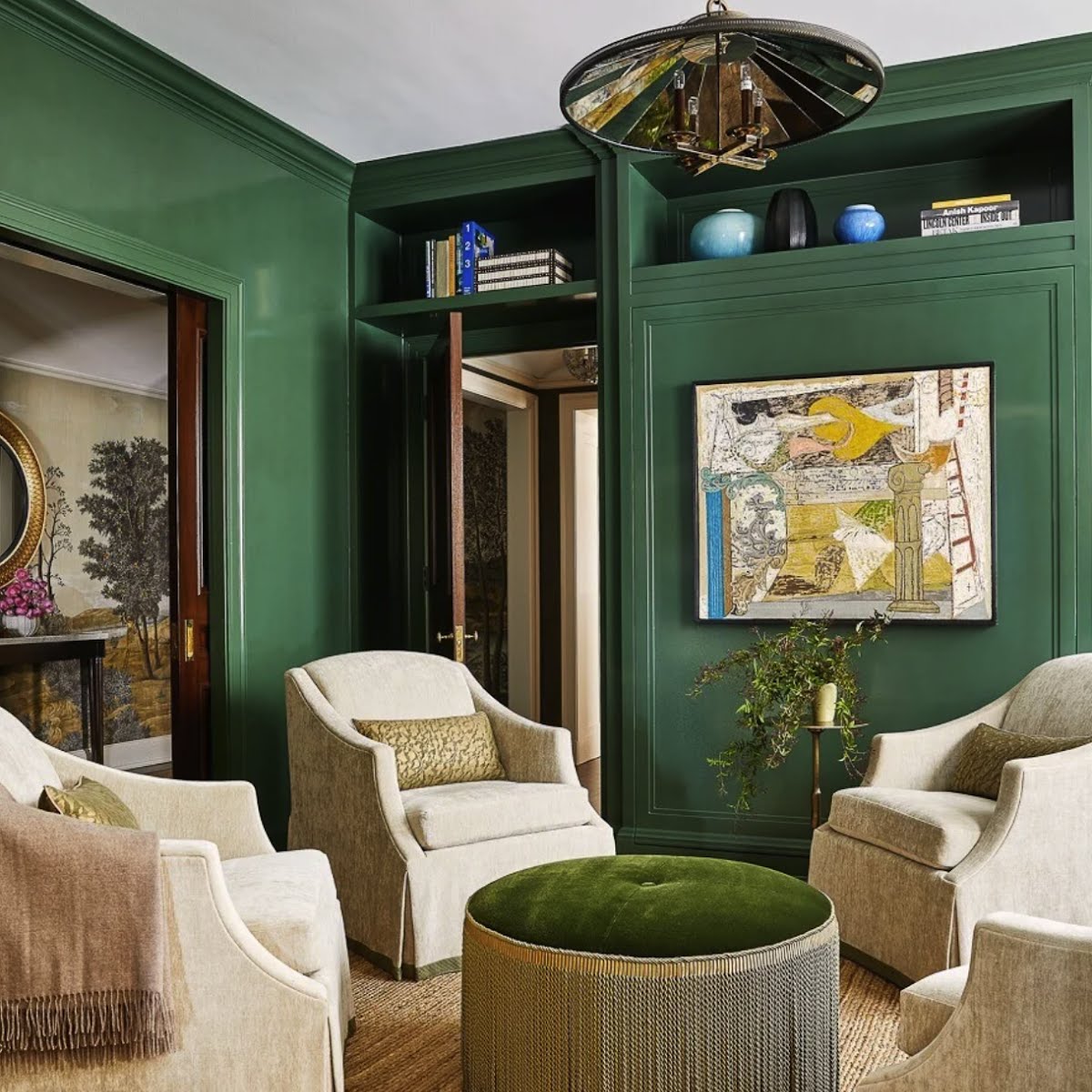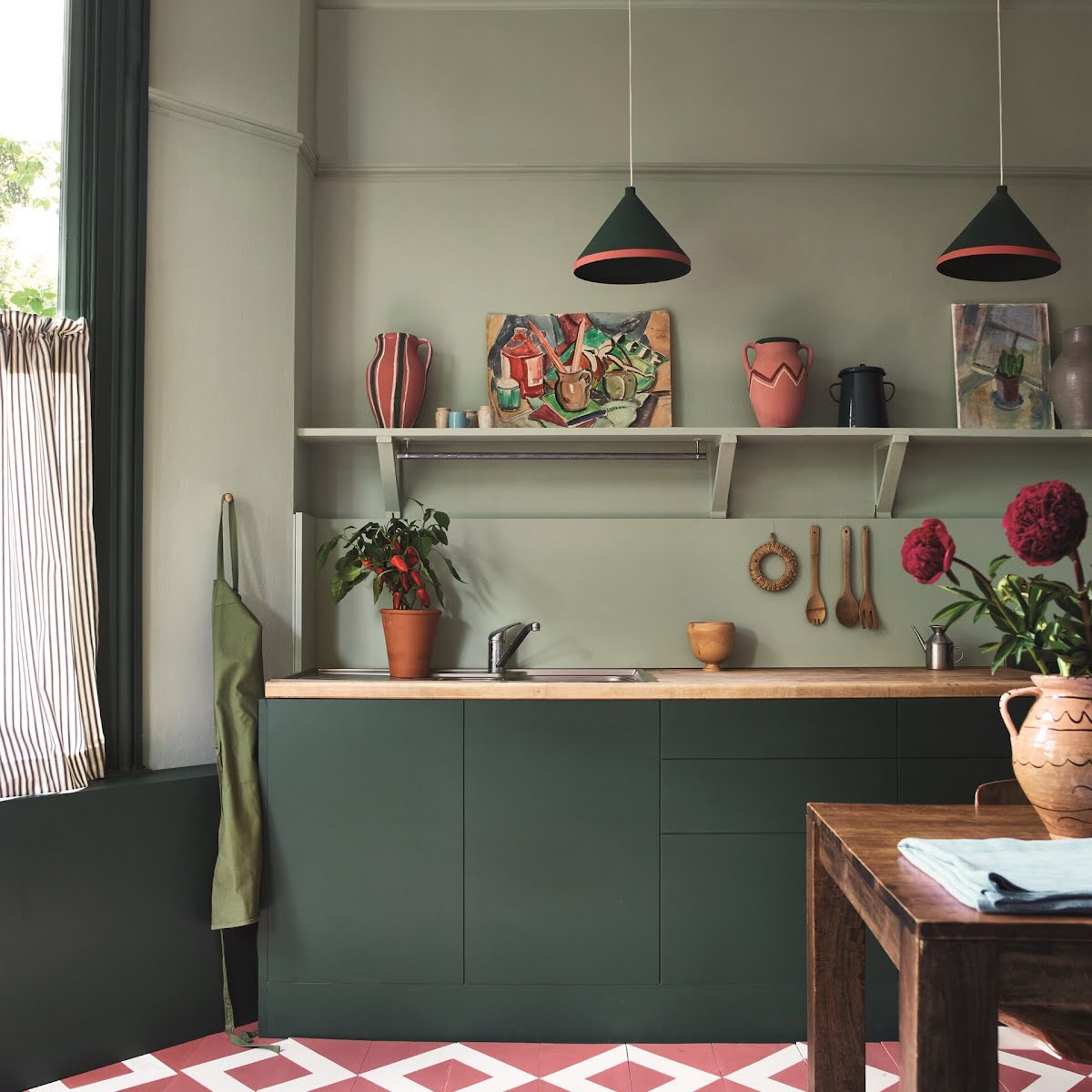
A room-by-room guide to using paint to create real impact.
Bedrooms
As the first thing you see when you wake in the morning and the place you retreat at the end of a long day, your bedroom should be a space that you truly love. Diane O’Connor, a colour consultant from Colourtrend, says that finding the perfect colour for your bedroom walls is a great way to start creating your desired home atmosphere, whether that’s warmth, serenity or freshness.
She advises looking for inspiration to give you a sense of the look you want to create. “Another great place to begin a painting project is actually with your furnishings,” Diane explains. “It is often easier to find a paint to work with your textiles, furniture and flooring than it is to match those items to your paint colour.”
When it comes to choosing a paint finish, a bedroom is a chance to go for matte, as it’s a relatively low-traffic area, and as it has no sheen, it creates a softer, cosier finish.
Living rooms
As one of the main spaces in your home, it is tempting to play it safe with your living room when it comes to colour. However, Olha Kelly, colour consultant at MRCB, insists that a living space can take deeper and more dramatic colours that most other rooms in the house.
That said, she does emphasise the importance of testing out colours in situ. “True colour will be affected by light and its surroundings. It should be always tested by painting sample pots on a sheet of lining paper at least two to three metres, using two coats of paint,” Olha advises.
“This makes it easy to move around the room and the perception of the colour will not be affected by the existing colour on the walls.” She also points out that you should consider what time of day you use your living room most often, and test out the colour then, as it will appear very different in natural and artificial light. This will also affect whether you should go for a paint with more sheen, which will bounce light around the room, or a flatter, matte finish.
When using a deep colour, consider letting it take centre stage by painting details like skirting boards, cornicing, window frames and doors in the same colour. This not only creates a cohesive look, but can make the room look taller, and feels calming to the eye. To achieve this look, Olha recommends using the same product for both walls and woodwork, as different finishes will affect the colour.
If you don’t fancy matching your walls and woodwork, it can be nice to take a colour from your furnishings, and using it in a detail like the back of shelving, or woodwork.
Detail
When you’re painting, considering all the details of your space such as radiators, woodwork, and even floors and stairs will really elevate the finish. When it comes to surfaces like this, it’s important to research what kind of paint will be most suitable. Paints designed for wood or metal will be more hardwearing, and will adhere properly to these surfaces. They also may need more preparation than walls, such as sanding and undercoats – ask your local paint supplier for advice. The colour you choose will either help to make a feature out of these details, or blend them in with the rest of your room.
Bathrooms
Typically one of the smallest rooms in the house, and notorious for lacking natural light, the temptation with bathrooms is often to stick to pale neutrals. However, Diane advises that by breaking up the wall and using two colours, you can actually make the room feel bigger. “Using two colours from the same family, making sure one is darker than the other will give a colour contrast, and a sense of depth.” What’s more, she points out that “bathrooms can be a great place to experiment and be brave with colour. You can use a shade you love but might be a bit hesitant to try in a different room, as you don’t spend as much time in this space.”

As a high-moisture area, you should be careful about what finish of paint you choose for your bathroom. Matte and eggshell do not stand up well to humid environments, so opt for a paint with a sheen. There are also specially designed bathroom paints which help protect against mould.
If your bathroom has wooden floors, painting them can also be a good option. It will also make the wood more resistant to water. If you’re doing this, ensure to sand, clean and prime the floor thoroughly before you start – it’s a time-consuming job, but it will provide much smoother and longer-lasting results.
Kitchens
With several different surfaces to consider, kitchens present a wide range of possibilities when it comes to paint. When giving the walls a refresh, keep in mind that, like bathrooms, the finish you choose should be able to withstand some level of moisture. If you love deep colours, embrace them by painting both your walls and units. Alternatively, using a dark colour paired with a lighter shade gives you the impact of a dark colour with the brightness of a paler one.
Re-painting kitchen units is no small task, but it is considerably cheaper than buying new ones, and will rejuvenate your space completely. This can either be done by hand, or spray-painted. Ronan Carey, director at Newcastle Design, explains that spray painting is perfect for those who want to refresh their kitchen on a small budget, however he points out that any scratches or marks cannot easily be repaired. “Hand painting allows you to tailor your colour, with a much larger range of choices, and also gives you a lifetime of aftercare options.”
Other details in a kitchen, like garden and patio doors can also benefit from an injection of colour. Charlotte Cosby, head of creative at Farrow & Ball explains that it can even be used to change the perception of these features. “Create the illusion of a larger door frame by painting a wide border around the existing architrave.”











